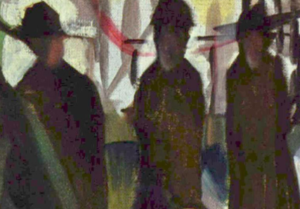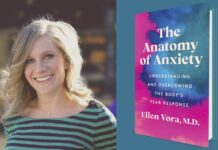From Aeon: Although anxiety may be a major source of discomfort and suffering, it can also play an important role in the development of our identities and worldviews. Instead of rushing to medicate anxiety away, we can learn a great deal by listening to it.
“Perhaps then, anxiety – precisely because it affords a moment for discovery, reconceptualisation and self-construction – should not be medicated out of existence. (Blaise Pascal noted in Penseés (1670) that people employed ‘diversions’ to escape ‘thoughts of themselves’.) Anxiety is, of course, unpleasant, and all too easily triggers the palliative responses of intoxication or medication. So medication might be necessary when anxiety becomes neurotic and crippling – a distinction present in Kierkegaard – but, as May points out, it is an ‘illogical belief’ that mental health consists in being anxiety-free.
Instead, living with the felt experience of anxiety, a conscious ‘wallowing’ and ‘inspection’ can enable an investigation of the self and the particular economy of its lived life. Anxiety, as Kierkegaard claimed, is a ‘school’ for the self. When we meditate, we allow ourselves to feel our anxieties; they rush into the mental spaces we leave open, reminding us of all that can go terribly, terribly wrong; they wash over us, almost making us leap out of our meditative postures. But, there too, while meditating, we can closely inspect the nature of the beast. As Freud might suggest, to medicate anxiety away could indicate a resistance underwritten by fear of finding out who we are. Smashing idols is never easy.”















